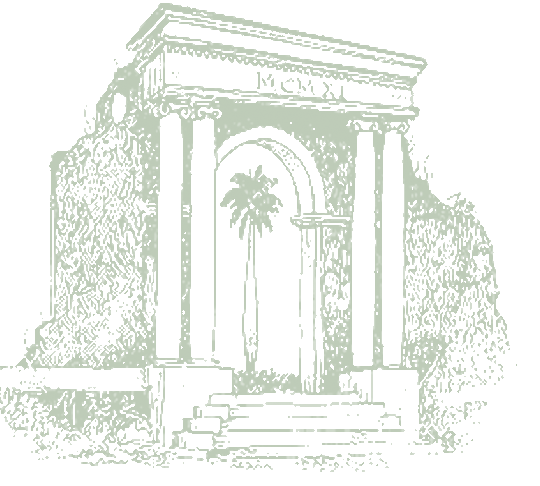Bilingual Writing CentersSustainable ContextCommunity OutreachStudent Learning ModulesAbout Us |
|
A Sustainable Energy Initiative (SEI) has been established to provide a global and practical context for the development of professional skills. A core philosophy of this component is that the search for solutions to the global energy dilemma should be assumed as a moral obligation (see Figure 1). This new perspective on energy will inspire students to form a new perspective on energy from which a more sustainable future may emerge and be passed on to the next generation [2]. Furthermore, a more responsible and aware graduate will emerge from UPRM, prepared to contribute to the solution of the Nation’s energy problems from a global and interdisciplinary perspective. SEI uses the sustainability philosophy to provide a learning context for engineering students that provides not only contents, but also a motivation and a global perspective of their education in engineering. Within this context students are also expected to deepen their general education skills, since they need a holistic perspective to better grasp the two sustainability components discussed below. The SEI has two main areas:
1. A module-based framework in which UPRM students can benefit from a more integrated energy perspective. Some of the module topics and their descriptions are as follows:
2. Experimental and real-life settings for students to understand the impact of energy in society, and outreach to K-12 and general public. The Outreach component is led by the CHEM E Laboratory under the supervision of Dr. José Colucci Ríos, PE. The focus of this component was to organize and implement a workshop for high school students and initiate the development of modules that will be developed for the CHEME Sustainable Energy Laboratory efforts. In the former the learning objective of the workshop is to educate and convert about Sustainable Energy utilizing several hands on and/or visual modalities. The targets audiences are students and public in general. Each audience requires strategic methodologies. For example, first the students were given a 30 minute presentation on sustainable energy technologies focusing on residential applications. These included energy efficiency, photovoltaic panels, wind turbines and solar water heaters. Then the students build a solar energy toy car which was used in a race. In another activity highly enthusiastic undergraduate and graduate students are critical for K-12 workshops. These workshops must be cool. The workshop focuses on demonstrating and explaining the different laboratory techniques used in the microalgae project as well as other initiatives. Presently, two workshops are organized per semester for this audience with 20-30 students per workshop. Undergraduate students are also a challenge. We envision developing both laboratory and classroom modules with their respective equipments and strategies.
Our laboratory is one of the most diverse and interdisciplinary within the University of Puerto Rico system. We are proactive in research that crosses boundaries among chemical engineering, bioprocess engineering, biotechnology, renewable fuels and sustainability. Most methodologies used in our laboratory allow our students to acquire experience in techniques related to growth of microorganisms, enzyme-catalyzed reactions, transport phenomena, bioreactors, bioproducts purification techniques, production and purification of alternative biofuels, and sustainability issues of biofuels.
During the past years, our undergraduate research group has been fully interdisciplinary: students from Chemical Engineering, Industrial Biotechnology, Industrial Microbiology and Mechanical Engineering have participated in our projects. Our graduate students have been pursuing their Masters or Doctoral degrees in Chemical Engineering, Chemistry and Agricultural Sciences. We also have hosted high school students internships, who have successfully performed their Science Fair projects in our lab. Collaboration through use of equipment is also offered to other graduate researchers, as well as faculty from and beyond the Department of Chemical Engineering.
We also have a strong dissemination program as part of our participation in the Center for Resources in General Education (CIVIS) Program. Every semester and summer terms, groups of students from diverse educational levels and disciplines are offered scientific presentations and lab tours to receive orientation with respect to biofuels knowledge and their potential impact on Puerto Rico’s economic and social development.
Vision
To serve as a key center for the education and research in biofuels production and sustainability, renewable energy resources and bioprocess engineering to contribute to the economic development of Puerto Rico.
Mission
To provide an educational philosophy to our students at graduate and undergraduate level by combining experiences in an applied research environment in the areas of biofuels, bioprocessing and renewable energy.
To identify, design and optimize systems to overcome problems associated to the processing of renewable feedstock to be used for the production of biofuels and renewable energy.
To disseminate and create conscience about the importance and constrains related to our research areas.
To promote contemporary grounding in professional responsibility, ethics, the global and local social impact of engineering decisions, and the need for lifelong learning.
Recent Research Projects
Current Research Projects
Added value for our participants
Director and Staff Information:
CIVIS Sustainable Energy Initiative (SEI) Director / Efraín O’Neill-Carrillo, PhD, PE. Email: oneill@ieee.org, oneill@ece.uprm.edu
CIVIS SEI CHEM E Laboratory Coordinator / José Colucci Ríos, PE, PhD
Contact Person:
Lorenzo Saliceti
University of Puerto Rico, Mayagüez Campus
Department of Chemical Engineering
Phone: 787-832-4040 X 3749
Fax Number: (787) 265-3818
P.O. Box 9000, Mayagüez, P.R. 00681-9000, Puerto Rico
lorenzo.saliceti@upr.edu
|


